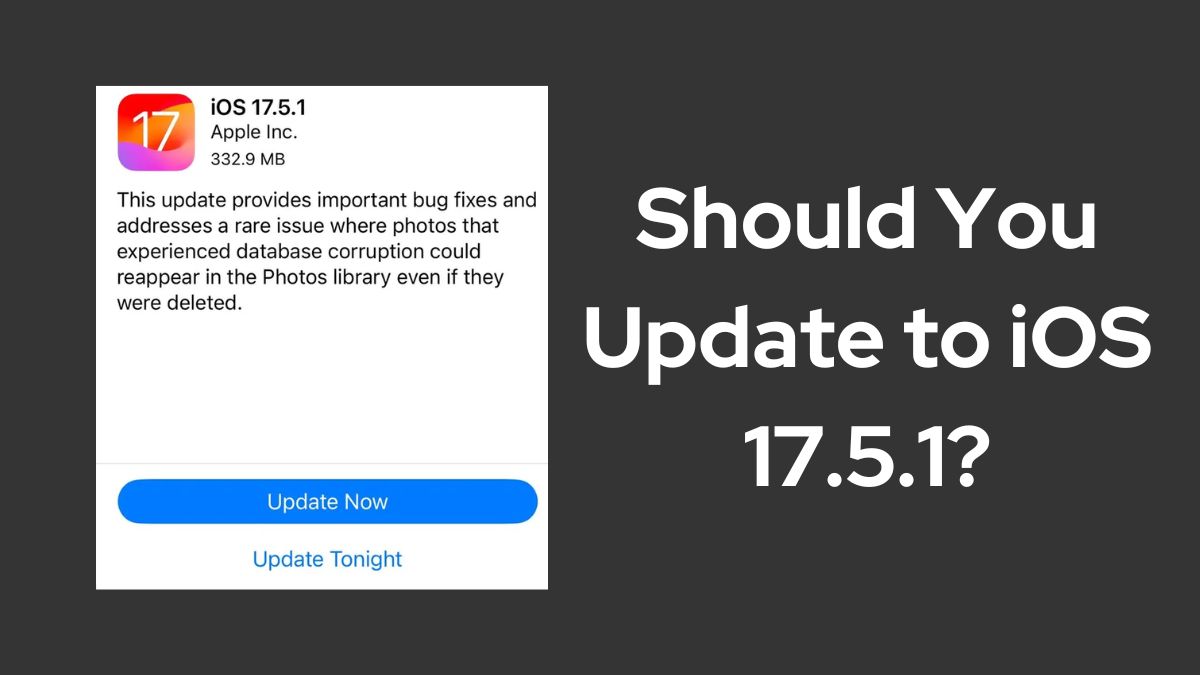Apple recently released the iOS 17.5.1 update, a minor but significant patch that addresses a critical privacy issue affecting iPhone users. This update comes just a week after the release of iOS 17.5, which introduced several new features and improvements to the iPhone operating system. While some users may be hesitant to update their devices so soon, the iOS 17.5.1 update is one that you should not ignore.
The Reappearing Photos Bug
The primary reason for the swift release of iOS 17.5.1 is to fix a rare but serious bug that caused deleted photos to reappear in the Photos library. This issue stems from a database corruption that could potentially restore previously deleted images, even if they were removed by the user. The bug not only affected photos deleted by the current owner but also had the potential to resurface images from previous owners of the device.
This privacy concern is particularly alarming, as it could lead to the exposure of sensitive or personal information. Apple promptly addressed this issue with the iOS 17.5.1 update, ensuring that deleted photos remain permanently erased from the device.
Check: Best Emulators for iOS in 2024
Importance of Privacy and Security
Today, privacy and security are of utmost importance. The reappearing photos bug serves as a reminder of how vulnerable our personal data can be, even on seemingly secure devices like iPhones. By swiftly releasing the iOS 17.5.1 update, Apple demonstrates its commitment to maintaining robust security standards and protecting user data.
The update not only resolves the photo library issue but also reinforces user confidence in Apple’s ability to handle privacy concerns effectively. As more and more sensitive information is stored on our smartphones, it is crucial to have an operating system that prioritizes data security.
Additional Bug Fixes and Improvements
Apart from addressing the reappearing photos bug, iOS 17.5.1 also includes several other bug fixes and improvements that enhance the overall user experience. These updates aim to resolve issues reported by users in previous versions of iOS 17.
Some of the notable improvements include:
- Enhanced Battery Management: The update fixes a bug that caused faster battery drain on some devices.
- Improved Connectivity: Issues related to Wi-Fi and Bluetooth connectivity have been addressed, ensuring smoother operation.
- Security Enhancements: The update includes bug fixes and addresses vulnerabilities that could potentially compromise user security.
By including these additional fixes, Apple aims to provide a more stable and efficient operating system for iPhone users.
Read: iPhone 16 Leaks, Features, Price, Camera
Should You Update to iOS 17.5.1?
Given the critical nature of the reappearing photos bug and the additional improvements included in the update, it is highly recommended that all iPhone users update to iOS 17.5.1 as soon as possible. Delaying the update could leave your device vulnerable to privacy breaches and other issues.
To update your iPhone, follow these simple steps:
- Go to the iOS Settings
- Tap the General option
- Tap Software Update
- Download and install the update
Before proceeding with the update, ensure that your device has a full backup and is sufficiently charged. It is also recommended to have a stable internet connection to ensure a smooth update process.
The Future of iOS Updates
While iOS 17.5.1 focuses on fixing a critical bug, it also paves the way for future updates that will bring more features and improvements to the iPhone operating system. Apple is already beta testing iOS 17.5, which includes updates to Apple News, Tracking Notifications, and Web Distribution for developers.
Looking further ahead, the upcoming iOS 18 update is generating buzz among users and industry experts alike. With rumors of enhanced AI capabilities and other innovative features, iOS 18 is expected to revolutionize the way we interact with our iPhones. As the anticipated release date approaches, all eyes will be on Apple to deliver an update that not only enhances functionality but also addresses ongoing user concerns.






